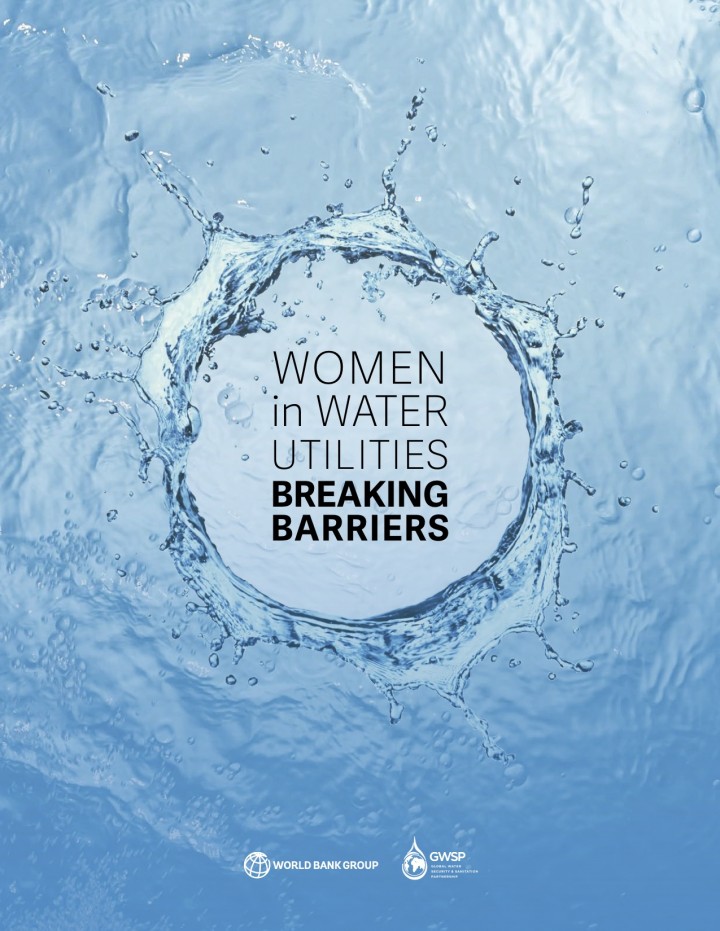Women in Water Utilities Breaking Barriers World Bank (2019)
The crucial role women play in managing and safeguarding water at the domestic and community level has long been recognized. Across the world, women and girls bear the brunt of collecting water—often from long distances or in harsh conditions—and usually bear responsibility for household hygiene and sanitation needs. What has been less explored is the intersection between water, gender, and employment. Water is a crucial source of jobs, both directly, as an employer in water services, and indirectly, through the economic opportunities that depend on water.
That women are mostly absent as actors in managing water resources and water infrastructure presents both a challenge and an untapped opportunity the world over. Encouraging and facilitating women’s employment in the water sector are areas through which we can make a dent in gender inequality and contribute to achieving the Sustainable Development Goals. The World Bank’s Gender Strategy emphasizes the importance of removing constraints to more and better jobs, because increasing women’s participation in the labor force and increasing their income- earning opportunities are central to the achievement of the World Bank’s twin goals of eliminating extreme poverty and boosting shared prosperity. This report contributes to the knowledge on the nexus between water, gender, and employment. It draws on empirical evidence that clearly shows that women are significantly underrepresented in the water sector.
Bibliographic information
World Bank (2019). Women in Water Utilities Breaking Barriers World Bank, Washington, DC
Filter / Tags
Factsheets and policy briefsEnglishWomen's rights & representation and empowermentGender equalityGender transformative WASHWomen in Water Jobs

